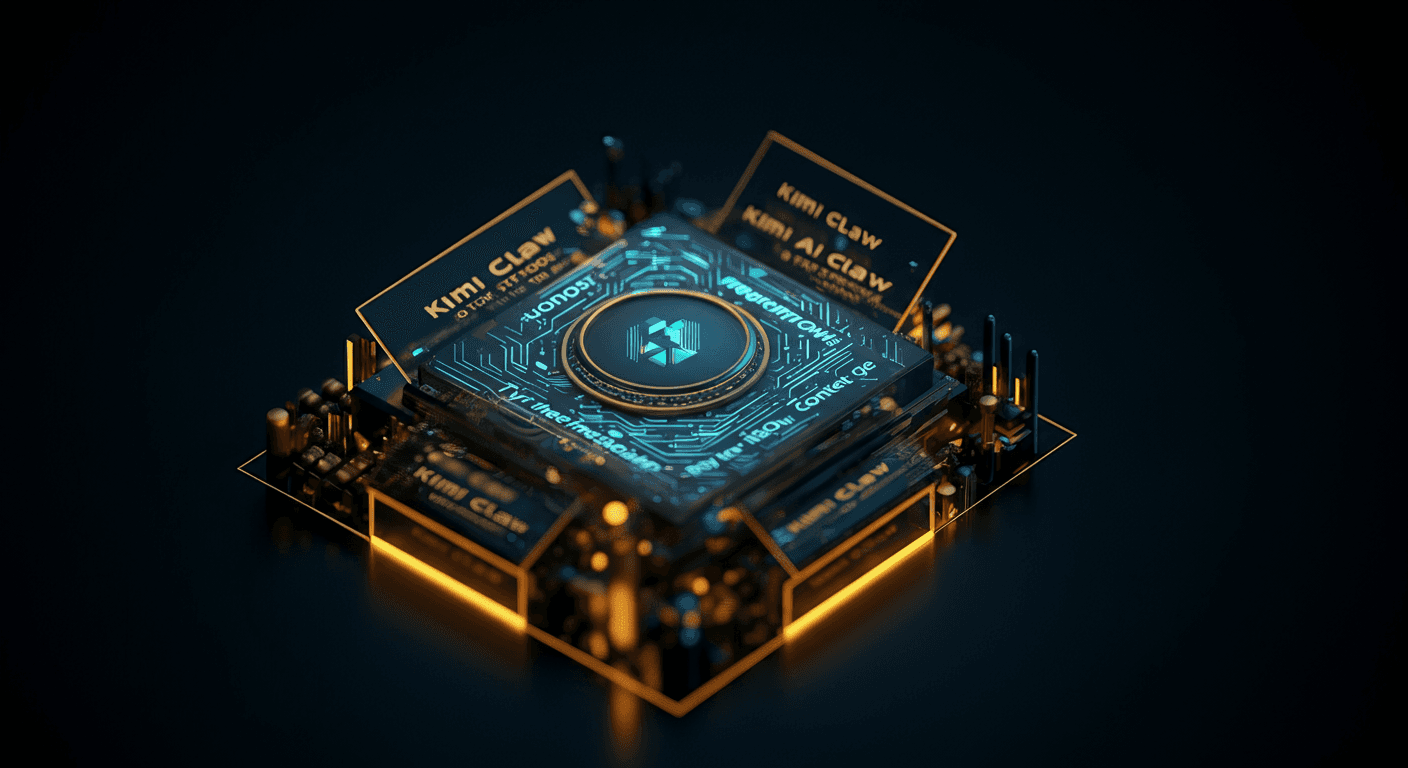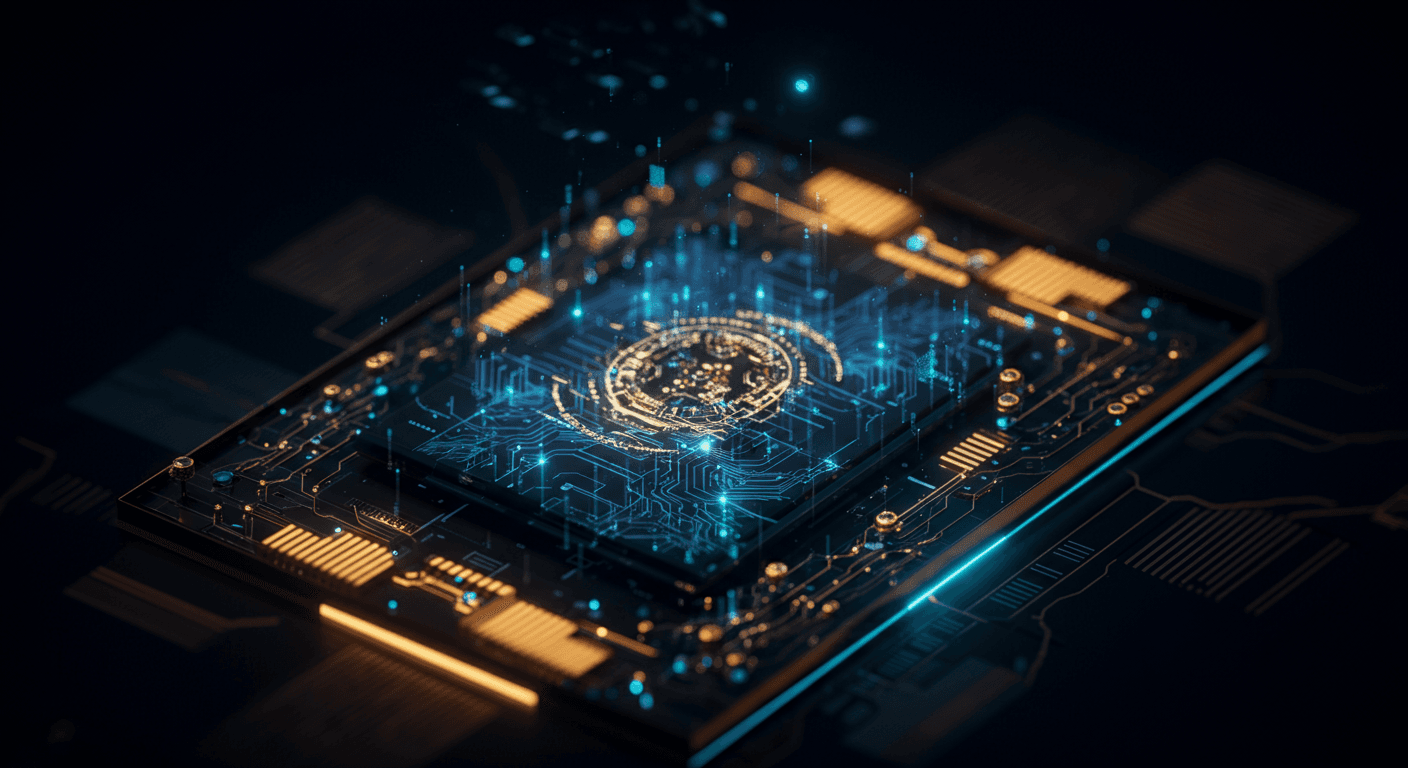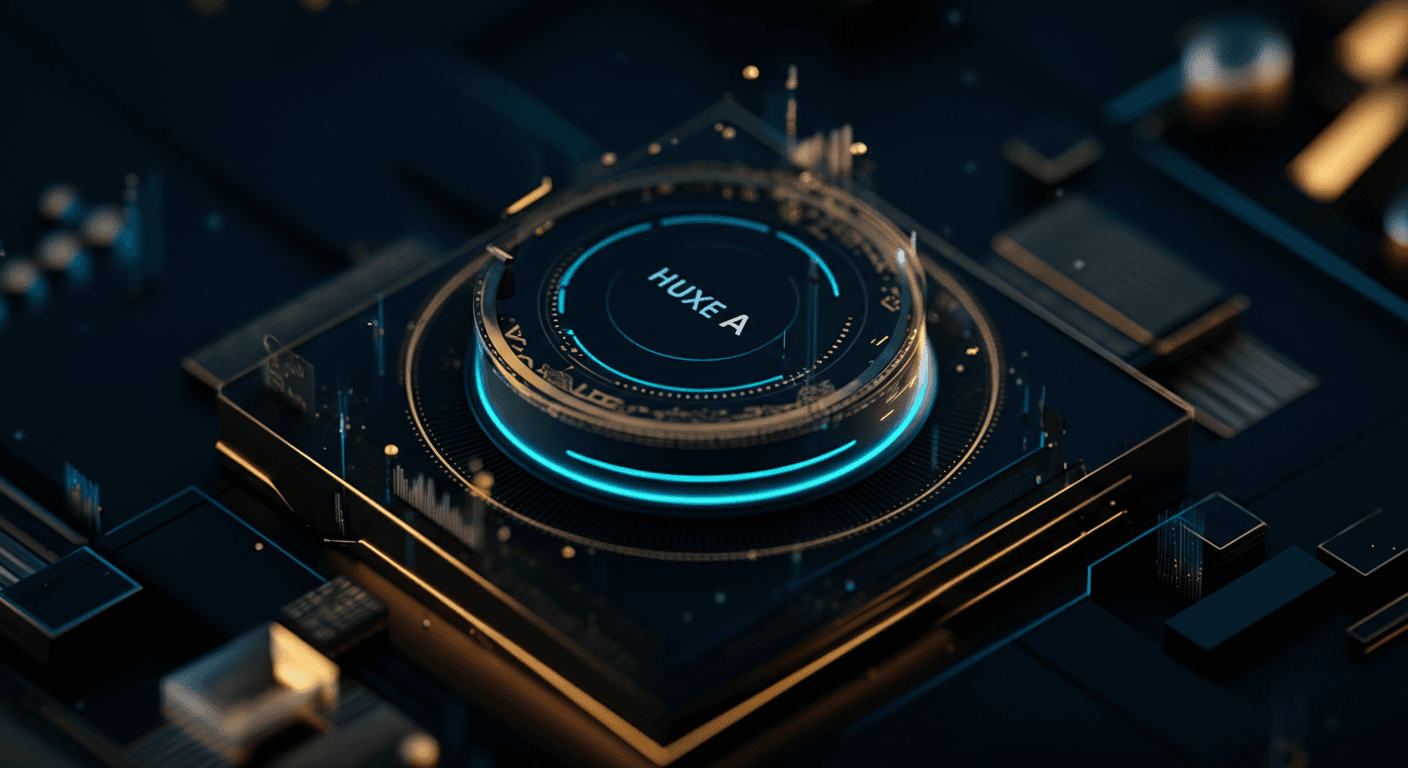AI News Roundup: NTT's Expert AI, Quantum Computing Leaps, and Global AI Alliances (August 1, 2025)

AI is rapidly transforming our world, from NTT's AI emulating expert decision-making to Fujitsu's quantum computing ambitions, offering unprecedented capabilities across industries. Discover how this convergence of hardware, software, and governance is democratizing expertise and unlocking exponential AI, but also demanding thoughtful ethical considerations. Explore these advancements to understand how they can benefit your organization and prepare for the AI-driven future by staying informed on AI regulations and hardware acceleration.
NTT Unveils "Expert Visualization" AI: Democratizing Expertise
Imagine if you could bottle the knowledge of your company's top expert and distribute it to every employee. That's the promise of NTT's groundbreaking "Expert Visualization" AI.

Mapping the Minds of Experts
NTT's new AI is designed to map expert decision-making processes with remarkable accuracy. But how does it achieve this feat? It starts by analyzing mountains of complex dialogue data. Think about those critical security call recordings, the nuanced back-and-forths in customer service interactions, or even the strategic discussions during high-stakes negotiations. The AI sifts through these interactions, identifying the patterns and correlations that define an expert's thought process. It's like watching a master chess player and learning to anticipate their every move.
Tacit Knowledge Transferred
The real magic lies in the AI's ability to transfer tacit knowledge – the kind that's hard to write down or explain – from seasoned professionals to non-specialists. It’s the intuition, the gut feeling, the unspoken rules of thumb that separate a novice from a master. By understanding how experts weigh different factors and arrive at conclusions, the AI can then create a framework that others can follow. Think of it as an AI-powered apprenticeship, but instead of years of shadowing, you get a distilled version of expertise on demand.
Scaling Expertise Across the Organization
One of the most compelling benefits is the ability to enable staff to replicate expert-level judgments at scale. This is not about replacing experts; it's about augmenting the capabilities of the entire workforce. For example, imagine a junior analyst being able to assess risk with the same acumen as a senior portfolio manager, or a newly hired technician troubleshooting a complex issue with the proficiency of a veteran engineer. NTT's AI essentially levels the playing field, empowering more employees to make informed decisions and solve problems effectively.
Democratizing Knowledge, Reducing Bottlenecks
By democratizing expertise, NTT's AI directly addresses one of the biggest challenges facing organizations today: training bottlenecks.
Traditional training programs can be time-consuming, expensive, and often fail to capture the nuances of real-world scenarios. This AI offers a faster, more efficient way to onboard new employees, upskill existing staff, and ensure that critical knowledge is not lost when experienced professionals retire or move on.
Transforming Industries with Efficiency and Consistency
The implications of this technology are far-reaching. Industries that rely on specialized knowledge and consistent decision-making stand to benefit the most. Consider sectors like finance, healthcare, cybersecurity, and law enforcement, where even small improvements in accuracy and efficiency can have a significant impact. By providing a standardized, AI-driven framework for decision-making, NTT's "Expert Visualization" AI promises to improve not only operational efficiency but also the overall quality and reliability of critical services. It's a move towards a future where expertise is no longer a scarce resource, but a readily accessible asset for every organization. This development underscores the increasing relevance of AI News in shaping industries and workflows.

Fujitsu's 10,000-Qubit Quantum AI Project: A Leap Towards Exponential AI?
The quantum realm is heating up, and Fujitsu is making a bold move. They've just launched a significant R&D project focused on building a superconducting quantum computer, signaling a major push towards what some are calling "exponential AI." But what does this really mean, and why should we care?
Fujitsu's Quantum Ambition: 10,000 Qubits and Beyond
Fujitsu isn't just dipping its toes into quantum computing; they're diving headfirst. Their ambitious goal is to develop a quantum computer with over 10,000 qubits. To put that in perspective, while the number of qubits isn't the only measure of a quantum computer's power, it's a crucial indicator of its potential complexity and problem-solving capability. Think of it like adding more RAM to your computer – the more you have, the more demanding tasks you can handle simultaneously.
Cracking Codes and Training AI: The Dual Focus
So, what will all this quantum horsepower be used for? Fujitsu has identified two key areas:
- Cryptography Breakthroughs: Quantum computers have the theoretical ability to break many of the encryption algorithms that currently secure our digital world. This project aims to develop new, quantum-resistant cryptographic methods to safeguard sensitive information in the face of these emerging threats. Securing our data is more important than ever, and you can stay up to date on the latest developments in AI News.
- High-Performance AI Training: Training complex AI models requires massive computational resources. Quantum computers could potentially accelerate this process, allowing for the development of more sophisticated and powerful AI systems. Imagine training a Deepseek model in a fraction of the time it currently takes – that's the kind of game-changing potential we're talking about.
Industrial Optimization: Real-World Applications
Beyond cryptography and AI training, Fujitsu envisions its quantum computer being used for a wide range of industrial optimization applications. This could include:
- Supply chain optimization: Streamlining logistics and reducing inefficiencies.
- Materials discovery: Designing new materials with specific properties.
- Financial modeling: Developing more accurate and predictive financial models.
- Drug discovery: Accelerating the identification of new drug candidates.
These are just a few examples, and the possibilities are virtually limitless. Think of it as using AI to find the perfect recipe for a complex industrial process, but with the added speed and efficiency of quantum computation.
Backing from the Government: A National Priority
This project isn't just a corporate endeavor; it's backed by significant support from the Japanese government. This highlights the strategic importance of quantum computing and AI to Japan's future competitiveness. Government backing signals a serious commitment and provides access to resources and expertise that can significantly accelerate the pace of development.
The Promise of Exponential AI: A New Hardware Arms Race?
The underlying promise of quantum computing is that it can unlock exponential leaps in AI capability. Classical computers store information as bits, which can be either 0 or 1. Quantum computers, on the other hand, use qubits, which can be 0, 1, or a superposition of both. This allows quantum computers to perform certain calculations much faster than classical computers.
The race for quantum supremacy is on, and Fujitsu's project is a clear signal that Japan intends to be a major player.
This development is undoubtedly fueling a new hardware arms race in the AI field. Companies and governments around the world are investing heavily in quantum computing, hoping to gain a competitive edge in AI development. It remains to be seen which approach will ultimately prevail, but one thing is clear: the future of AI is inextricably linked to the advancement of quantum computing. Tools like TensorFlow could see radical changes because of this development. As we watch the progress of quantum projects like Fujitsu's, we can't help but wonder what other breakthroughs are on the horizon and how they'll reshape the AI landscape in the coming years.
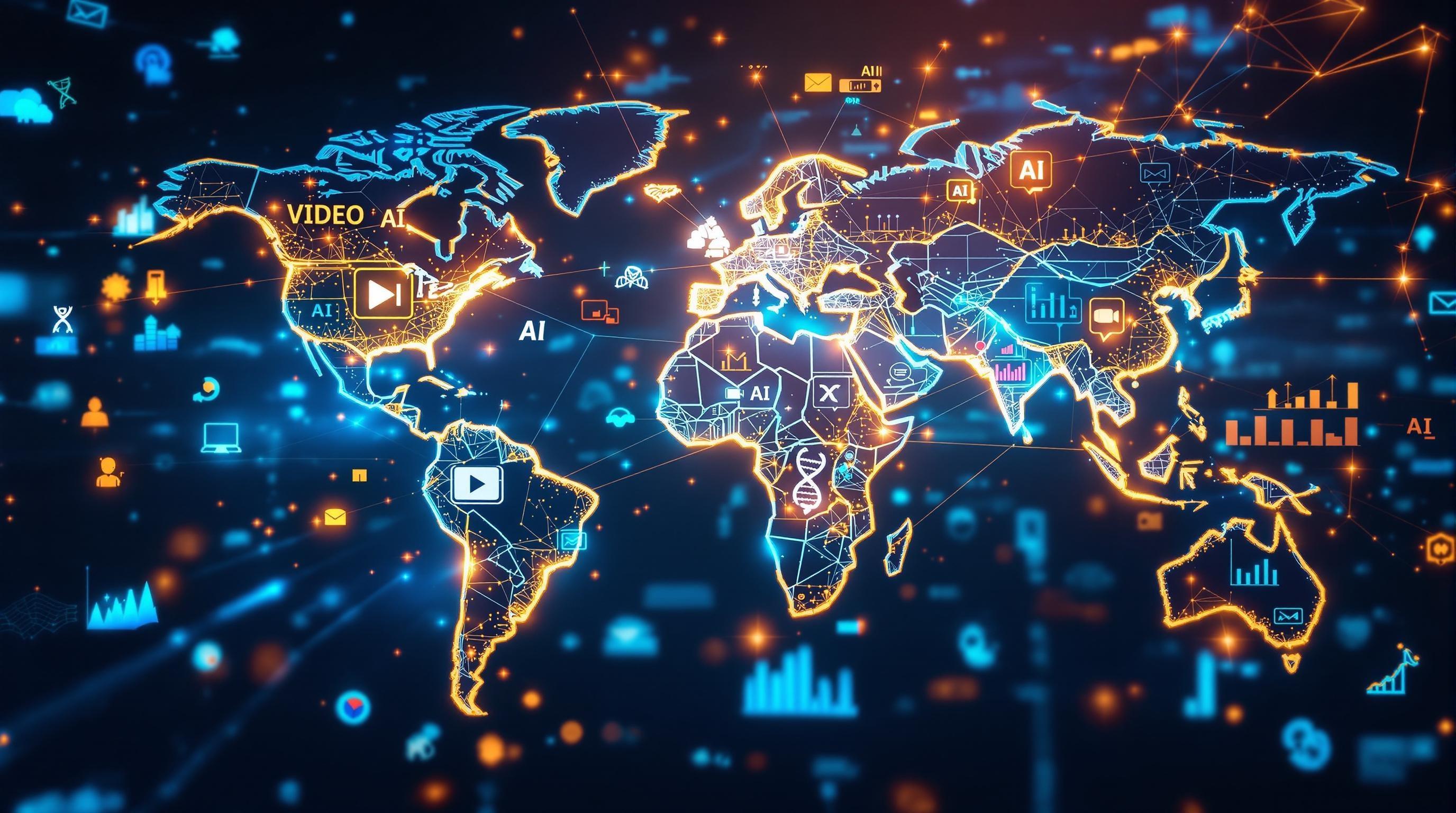
Asia Forges New AI Alliances: Kling, NTT Data, and Mistral AI Challenge Western Dominance
The tectonic plates of the AI landscape are shifting once again, this time with a clear pivot towards Asia. New alliances are forming, technologies are advancing rapidly, and the race for AI dominance is intensifying across the continent.
Kling's Video AI Breakthrough
Chinese video-AI startup, Kling, has recently emerged from stealth mode, unveiling a suite of advanced content-generation tools that are poised to disrupt the video creation landscape. Imagine being able to generate high-quality, engaging video content with just a few prompts. That’s the promise of Kling, and it's a significant leap forward. Kling represents a new generation of AI tools designed to empower creators and businesses alike. Think of it like Runway or Pika Labs, but with a unique focus on the Asian market and potentially different approaches to content generation. These tools are not just about automating video creation; they're about unlocking new levels of creativity and efficiency.
NTT Data and Mistral AI Join Forces
In another significant development, NTT Data, a major Japanese IT services provider, has announced a strategic partnership with France’s Mistral AI. This collaboration signifies a growing trend of cross-continental alliances aimed at challenging the dominance of Western AI giants. Mistral AI is known for its open-source approach and its focus on creating powerful, efficient language models. By partnering with NTT Data, Mistral AI gains a strong foothold in the Asian market, while NTT Data gains access to cutting-edge AI technology that it can integrate into its services. This alliance could lead to the development of new AI-powered solutions tailored to the specific needs of Asian businesses and consumers.
The Rise of Regional AI Ecosystems
These partnerships are not isolated events. They represent a broader trend of regional ecosystems strengthening their autonomy from Western technology. Countries across Asia are investing heavily in AI research and development, building their own AI infrastructure, and fostering local talent. This push for self-reliance is driven by a desire to control their own data, protect their national interests, and ensure that AI benefits their own societies. Consider the rise of AI models like Kimi, which is challenging even GPT-4 in some benchmarks. This localized innovation is crucial for long-term AI competitiveness.
Distributing LLMs and AI Agents Across Asia and Globally
The strategic distribution of Large Language Models (LLMs) and AI agents across Asia and globally is a key element of this new landscape. By making these powerful tools more accessible, these alliances aim to democratize AI and empower a wider range of users. Instead of relying solely on Western-dominated platforms, businesses and individuals in Asia will have access to AI solutions that are tailored to their specific needs and contexts. This distributed approach also fosters innovation and competition, driving further advancements in AI technology. Imagine a scenario where small businesses in Southeast Asia can leverage AI agents to improve their customer service or optimize their operations – that's the power of distributed AI.
The Foundational AI Race Heats Up
All of these developments contribute to an intensifying race for foundational AI dominance. The country or region that controls the underlying AI technology will have a significant advantage in the future economy. Asia's growing strength in AI is not just about catching up with the West; it's about positioning itself as a leader in the next wave of AI innovation. As we continue to track the latest developments in AI News, it's clear that the global AI landscape is becoming increasingly multipolar, with Asia playing a central role.
Asia's AI Alliances: A Summary
To recap, here’s a quick look at the key factors shaping Asia's AI alliances:
- Technological Advancements: Companies like Kling are pushing the boundaries of video AI.
- Strategic Partnerships: NTT Data's collaboration with Mistral AI exemplifies cross-continental cooperation.
- Ecosystem Development: Asian countries are investing in local AI infrastructure and talent.
- Distributed Access: LLMs and AI agents are becoming more accessible across the region.
- Dominance Race: The competition for foundational AI leadership is intensifying.
These factors combined signal a significant shift in the global AI landscape, one where Asia is poised to play an increasingly prominent role. The strengthening of regional ecosystems and the formation of strategic alliances are critical steps in challenging Western dominance and fostering a more balanced and competitive AI landscape. The rise of Asia in the AI arena is not just a regional story; it's a global transformation that will have profound implications for the future of technology and society. This sets the stage for exciting new developments in areas such as Prompt Engineering and the ethical implications of increasingly powerful AI.

Apple Boosts AI Investment: Privacy-Centric AI Set to Transform User Experience
Just when you thought the AI race couldn't get any hotter, Apple is reportedly cranking up the heat, and this time, they're betting big on privacy. Buckle up, because Apple's increased investment in AI R&D is poised to redefine how we experience technology, particularly with its emphasis on user privacy.
Deepening AI Integration Across the Ecosystem
Apple isn't just dabbling in AI; they're diving headfirst into the deep end. The tech giant plans to integrate generative models and AI agents more deeply into its core operating systems, including iOS and macOS, as well as its suite of cloud services. Imagine a world where your iPhone intelligently anticipates your needs, crafting personalized responses and streamlining tasks, all while keeping your data under lock and key.
Think of it this way: today, you might use Grammarly, an AI-powered writing assistant that helps refine your text, often with your data being processed on external servers. Apple's vision is to bring similar functionalities in-house, ensuring that the processing happens securely on your device, thereby minimizing the risk of data breaches and privacy violations. This is a game-changer for anyone concerned about data security.
The Competitive Landscape: Apple vs. Google and Microsoft
"The AI landscape is fiercely competitive, and Apple's strategic moves signal a clear intention to not only compete but to lead with a focus on privacy and user-centric design."
This increased investment comes amidst intense competition with tech behemoths like Google and Microsoft, both of whom are aggressively pushing the boundaries of AI. While Google's Google Gemini aims to provide versatile AI solutions and Microsoft integrates Microsoft Copilot deeply within its Windows environment, Apple is carving out a unique niche by prioritizing user privacy. The battle for AI supremacy is far from over, and Apple's distinct approach promises a fascinating showdown. For example, Google might offer AI features powered by vast cloud infrastructures, but Apple's on-device processing seeks to sidestep the privacy concerns that often accompany cloud-based AI.
Setting New Benchmarks for Privacy-Centric AI
What sets Apple's approach apart is its unwavering commitment to privacy-focused AI. In a world where data breaches and privacy scandals are increasingly common, Apple's stance is a breath of fresh air. By focusing on on-device processing and advanced encryption techniques, Apple aims to set new industry standards for how AI can be implemented responsibly and ethically.
This isn't just about ticking a box; it's about fundamentally rethinking the AI development process. Apple is betting that users will increasingly value privacy, even if it means sacrificing some of the cutting-edge features offered by its competitors. This strategy could resonate particularly well with consumers who are wary of sharing their personal data with large tech companies.
Prioritizing User Experience and Consumer-Tech Innovation
Beyond privacy, Apple's AI push is laser-focused on enhancing the user experience. Expect to see more intuitive interfaces, smarter suggestions, and seamless integration of AI-powered features across all Apple devices. This move not only cements Apple's position as a leader in consumer-tech innovation but also raises the bar for the entire industry.
Consider how Adobe Photoshop AI is transforming image editing. Apple's AI advancements could bring similar, seamless enhancements to its own creative tools, making complex tasks more accessible to everyday users. The goal is to make technology feel less like a tool and more like an extension of the user's own capabilities.
Apple's intensified focus on privacy-centric AI is not just a trend; it's a strategic pivot that could redefine the future of technology. As AI continues to permeate every aspect of our lives, the choices we make about privacy will have profound implications. To stay informed about these developments, be sure to check our AI News section for the latest updates and insights.
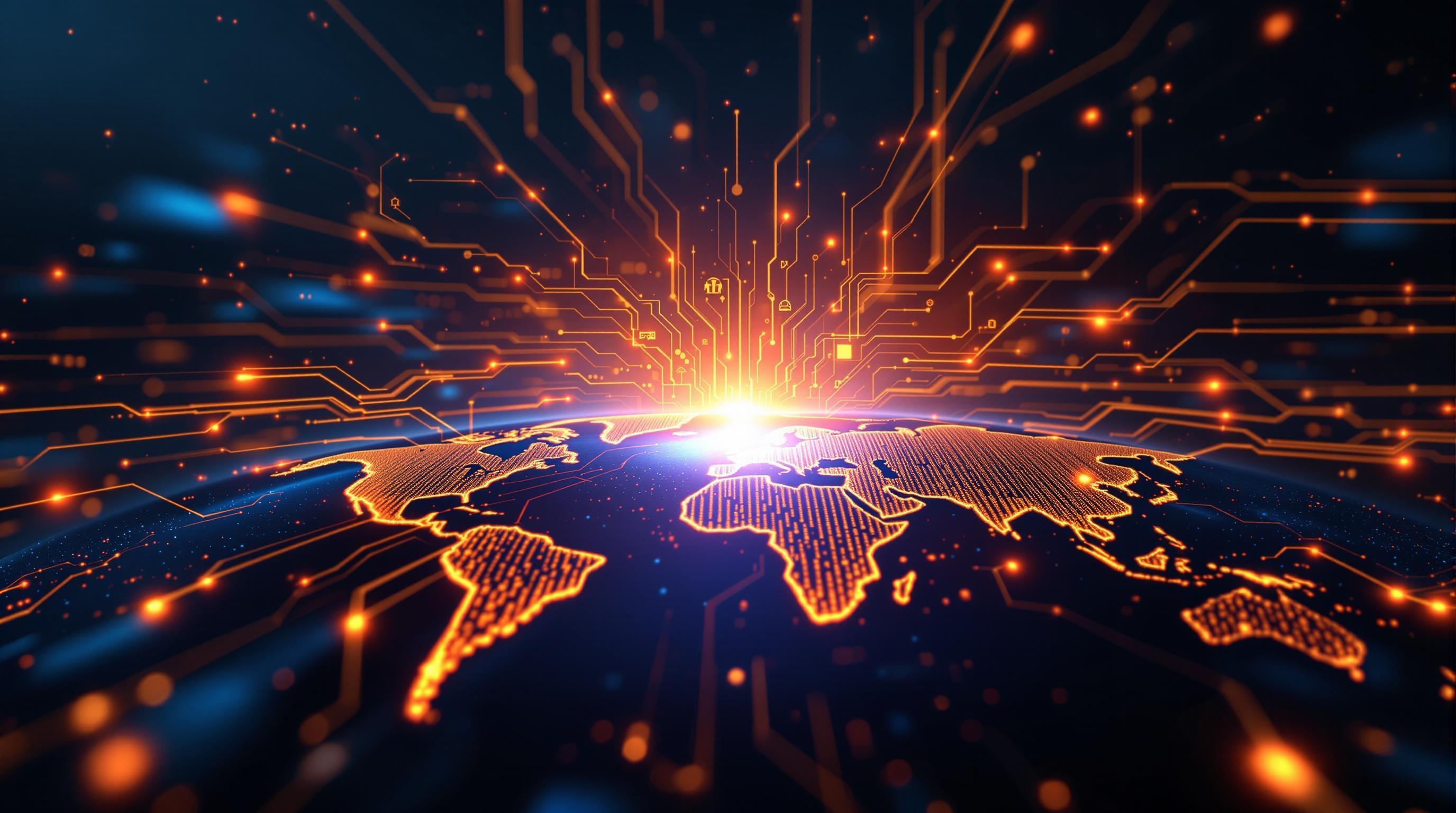
AI Accelerates Big Data and Genomics Advances: Unlocking Transformative Benefits
Imagine a world where complex diseases are diagnosed with pinpoint accuracy, personalized medicine is the norm, and agricultural yields skyrocket to feed a growing population. This isn't science fiction; it's the potential unlocked when AI accelerates big data and genomics advances. The convergence of these fields is creating transformative benefits across various sectors, reshaping industries, and improving lives in unprecedented ways. Let's delve into how this is unfolding.
China's Big Data Valley: An AI-Powered Ecosystem
China's Guizhou province, often dubbed the "Big Data Valley," is rapidly expanding its public-private AI projects, becoming a hub for innovation. This initiative is fostering collaboration between government entities and private companies, accelerating the development and deployment of AI solutions across diverse sectors. Think of it as a giant, collaborative lab where data scientists, engineers, and entrepreneurs come together to push the boundaries of what's possible with AI. They're not just crunching numbers; they're building the future.
Deep Learning and CRISPR-Cas: A Revolution in Gene Editing
Deep learning, a subset of AI, is driving breakthroughs in CRISPR-Cas technology, a revolutionary gene-editing tool. CRISPR-Cas, in essence, allows scientists to precisely target and modify specific DNA sequences. AI algorithms can analyze vast genomic datasets to identify optimal target sites, predict the outcomes of gene edits, and minimize off-target effects. This synergy is accelerating the pace of genetic research and opening new avenues for treating genetic diseases. Imagine AI as the GPS guiding the CRISPR-Cas "scissors" to the exact location on the DNA map, ensuring precise and safe edits.
Speeding Up Drug Discovery and Biotech Research
The traditional drug discovery process is notoriously lengthy and expensive, often taking years and billions of dollars to bring a single drug to market. AI is dramatically accelerating this process by:
- Analyzing massive datasets: AI algorithms can sift through vast amounts of biological and chemical data to identify potential drug candidates and predict their efficacy.
- Predicting protein structures: Tools like DeepMind's AlphaFold accurately predict protein structures, a crucial step in understanding how drugs interact with their targets.
- Designing novel therapies: AI can design new drug molecules with specific properties, optimizing their effectiveness and reducing side effects.
This isn't just about speed; it's about increasing the odds of success and developing more effective treatments for diseases that currently lack them.
Converging AI with Data and Life Sciences: A Transformative Synergy
The true power lies in the convergence of AI with big data and life sciences. AI algorithms can extract meaningful insights from complex datasets, identify patterns, and generate hypotheses that would be impossible for humans to detect. This synergy is leading to:
A deeper understanding of biological systems More accurate disease diagnosis Personalized treatment plans New strategies for preventing and managing diseases
It's like having a super-powered detective piecing together clues from a crime scene, only the crime scene is the human body, and the clues are the vast amounts of data generated by genomic sequencing and other biological experiments.
Applications Across Health, Agriculture, and Economic Competitiveness
The transformative benefits of this convergence are far-reaching.
In healthcare: AI is revolutionizing diagnostics, drug discovery, and personalized medicine. Imagine AI-powered tools that can analyze medical images with greater accuracy than human radiologists or predict a patient's response to a particular treatment based on their genetic profile.
In agriculture: AI is optimizing crop yields, improving resource management, and developing disease-resistant crops. Think of AI algorithms that can analyze soil conditions, weather patterns, and plant health to optimize irrigation, fertilization, and pest control.
In economic competitiveness: Nations and organizations that embrace this convergence will gain a significant competitive edge. They'll be able to develop new products and services, improve existing processes, and create new jobs in the rapidly growing AI and biotech sectors.
AI Accelerates Genomics Advances
One of the most promising areas is how AI is accelerating genomics advances. Analyzing the human genome and understanding its complexities is a massive task. AI is assisting in this task by:
- Analyzing large quantities of genomic data: Reducing the time for research and improving the overall results.
- Predicting which treatments are most effective: Doctors can use this information to provide the best treatment.
- Finding specific patterns: This is useful in treating and preventing diseases.
Ultimately, the convergence of AI with big data and genomics is not just a technological trend; it's a paradigm shift that is reshaping our world. As AI continues to evolve and mature, its impact on these fields will only continue to grow, unlocking new possibilities and transforming our understanding of life itself. This is the dawn of a new era of discovery and innovation, driven by the power of AI and the vast potential of big data.
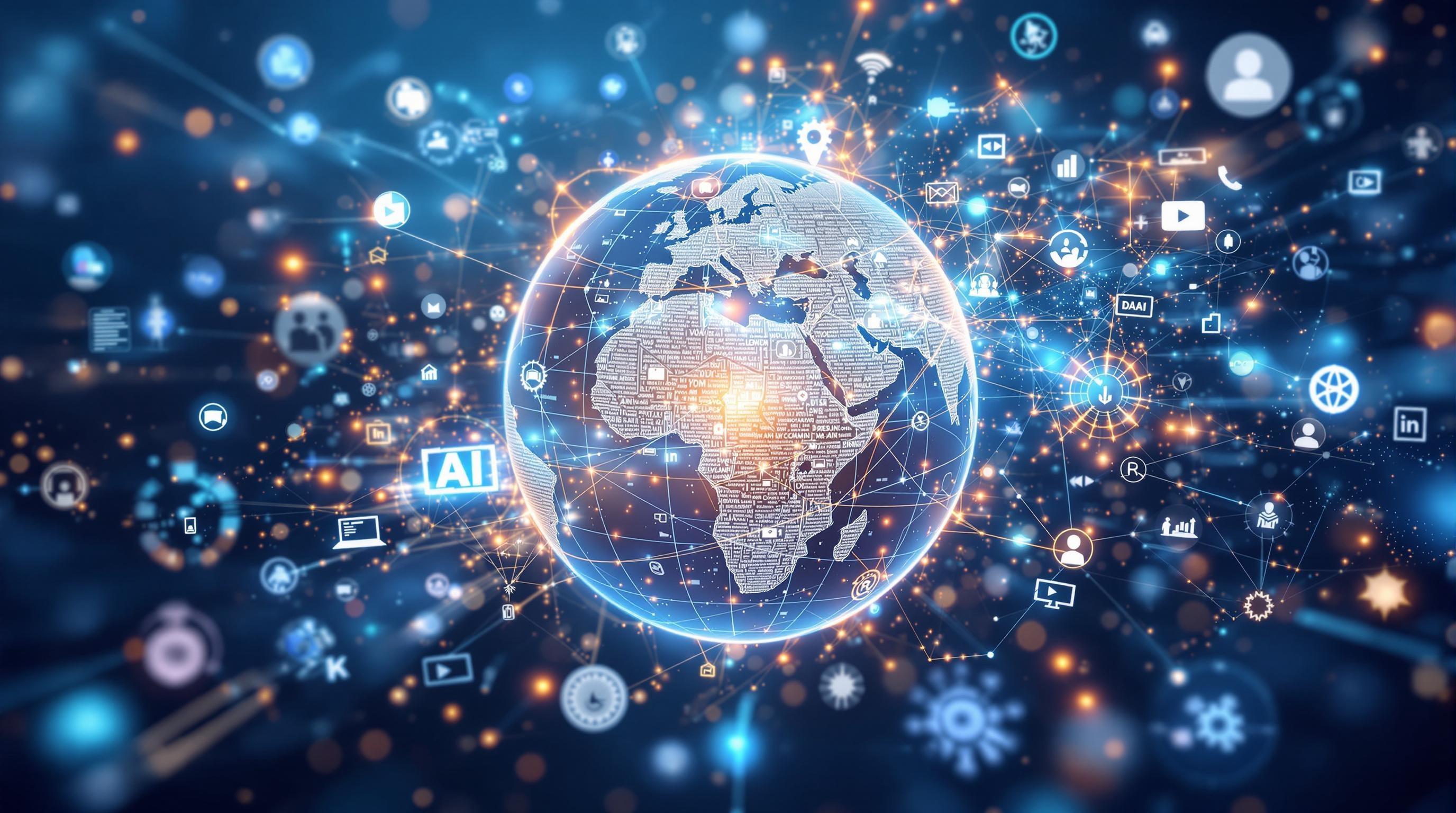
Analysis: AI at the Tipping Point – Hardware, Software, and Governance Converge
The relentless pace of AI development is bringing us to a point of no return, a moment where its impact is poised to fundamentally reshape our world. From emulating expert reasoning to the dawn of quantum scale-ups, the convergence of hardware, software, and governance is happening faster than anyone predicted. Let's dive into this pivotal moment.
Expert Reasoning Emulation to Quantum Leaps
We're witnessing AI transcend mere pattern recognition. Newer models are now capable of emulating expert reasoning, tackling complex problems with a sophistication previously confined to human specialists. Think of it like this: AI is moving from being a skilled technician to a strategic advisor. This shift is fueled by advancements in areas such as neural networks, knowledge graphs, and symbolic AI, allowing machines to not only process data but also understand context, draw inferences, and make informed decisions.
Simultaneously, the potential of quantum computing is looming large on the horizon. While still in its nascent stages, quantum computing promises to unlock unprecedented computational power, potentially revolutionizing AI training and algorithm design. Imagine DeepSeek, known for its cost-effectiveness, but with quantum capabilities – the possibilities are mind-boggling. The synergy between expert reasoning emulation and quantum computing could lead to breakthroughs in drug discovery, materials science, and other fields, creating a new era of scientific innovation.
The Rise of Pan-Asian Alliances
As AI becomes a global force, we're seeing the emergence of powerful alliances that transcend national borders. The Pan-Asian alliances are particularly noteworthy. These collaborations are pooling resources, expertise, and data to accelerate AI development and deployment across the region. This collaborative spirit fosters innovation and ensures that the benefits of AI are shared more equitably. One prominent example is the partnership between China's Kimi, an LLM outperforming GPT-4.1, and several Japanese tech firms to develop AI-powered solutions for manufacturing and logistics.
- Data Sharing: Combining diverse datasets to improve model accuracy and robustness.
- Joint Research: Conducting collaborative research projects to tackle complex AI challenges.
- Talent Exchange: Facilitating the exchange of AI talent and knowledge between countries.
- Standardization: Developing common standards and protocols to ensure interoperability and compatibility.
Hardware, Software, and Strategy: A Rapid Convergence
The traditional silos between hardware, software, and strategy are rapidly dissolving. We're entering an era of integrated AI solutions where these three elements are seamlessly intertwined. This convergence is driven by the recognition that AI is not just about algorithms or computing power; it's about creating end-to-end systems that deliver tangible value. For instance, NVIDIA's latest GPUs are not merely faster processors; they're designed to work in harmony with specific AI software frameworks, optimizing performance and efficiency. This tight integration requires a strategic vision that aligns hardware and software investments with clear business objectives.
As AI continues to evolve, the ability to orchestrate hardware, software, and strategy will become a critical differentiator for organizations seeking to gain a competitive edge.
The Urgent Need for Thoughtful Governance
As AI's intelligence goes global, the need for thoughtful governance becomes more urgent than ever. AI's potential to impact society is immense, but so are the risks. Bias, privacy violations, job displacement – these are just some of the challenges that need to be addressed proactively. Governments, businesses, and researchers must work together to develop ethical guidelines, regulatory frameworks, and accountability mechanisms that ensure AI is used responsibly and for the benefit of all. Take the EU AI Act, for example, which is trying to create some guidance in this area, although the space is evolving so rapidly.
AI at an Inflection Point
We're at an inflection point. The confluence of expert reasoning emulation, quantum computing, pan-Asian alliances, and the convergence of hardware, software, and strategy is creating a perfect storm of AI innovation. As AI continues to mature, its impact on society will only deepen. It's crucial that we embrace this transformative technology with both excitement and caution, recognizing its potential to solve some of the world's most pressing challenges while also mitigating its risks.
Hardware Acceleration
One of the key drivers of this acceleration is the relentless pursuit of hardware optimization. Specialized AI chips, such as TPUs (Tensor Processing Units) and GPUs (Graphics Processing Units), are designed to handle the massive computational demands of AI workloads far more efficiently than traditional CPUs. This hardware acceleration is enabling faster training times, lower energy consumption, and the ability to deploy AI models on edge devices. Tools like NVIDIA AI Workbench are streamlining the development process, making it easier for developers to leverage these hardware advancements. Consider also that Groq is making waves with its ultra-fast inference capabilities, demonstrating the power of purpose-built hardware for AI. This trend towards hardware specialization will only intensify as AI models become more complex and demanding.
As hardware, software, and governance rapidly converge, we find ourselves on the cusp of an AI-powered future. The crucial element now is how we choose to steer this immense technological power, ensuring it serves humanity's best interests. The ongoing discussions surrounding AI Regulation are pivotal in shaping this trajectory.

🎧 Listen to the Podcast
Hear us discuss this topic in more detail on our latest podcast episode: https://creators.spotify.com/pod/profile/bestaitools/episodes/AI-News-Roundup--August-1--2025-e36ahbs
Keywords: AI, Artificial Intelligence, Quantum Computing, Big Data, Genomics, Expert Systems, AI Investment, AI Research, Generative AI, AI Agents, NTT AI, Fujitsu Quantum Computer, Kling AI, Mistral AI, AI Governance
Hashtags: #AI #QuantumComputing #Genomics #ExpertSystems #BigData
For more AI insights and tool reviews, visit our website https://best-ai-tools.org, and follow us on our social media channels!
- Website: https://best-ai-tools.org
- X (Twitter): https://x.com/bitautor36935
- Instagram: https://www.instagram.com/bestaitoolsorg
- Reddit: https://www.reddit.com/r/findAIwithAI/
- Telegram: https://t.me/BestAIToolsCommunity
- Medium: https://medium.com/@bitautor.de
- Spotify: https://creators.spotify.com/pod/profile/bestaitools
- Facebook: https://www.facebook.com/profile.php?id=61577063078524
Recommended AI tools
OpenAI Academy
Conversational AI
Empowering the next generation of AI innovators
AI Undresser
Image Generation
Uncover the hidden truth
Credo AI
Data Analytics
The trusted leader in AI governance
Islam & AI
Conversational AI
Bridging Islam and Artificial Intelligence
AI for daily life
Search & Discovery
Discover how AI can make your life easier
Responsible AI Institute
Scientific Research
Empowering Ethical AI
Was this article helpful?
Found outdated info or have suggestions? Let us know!
